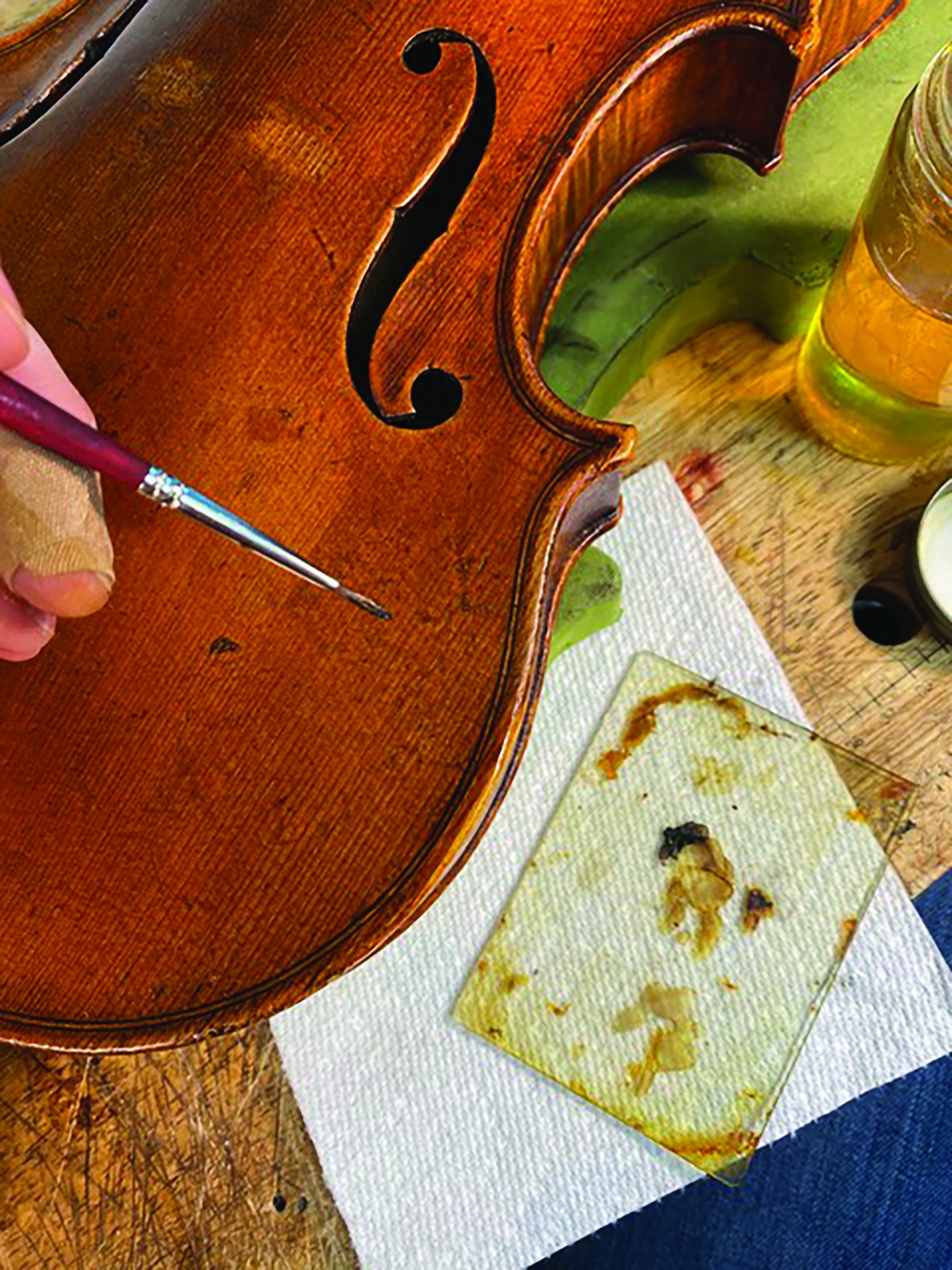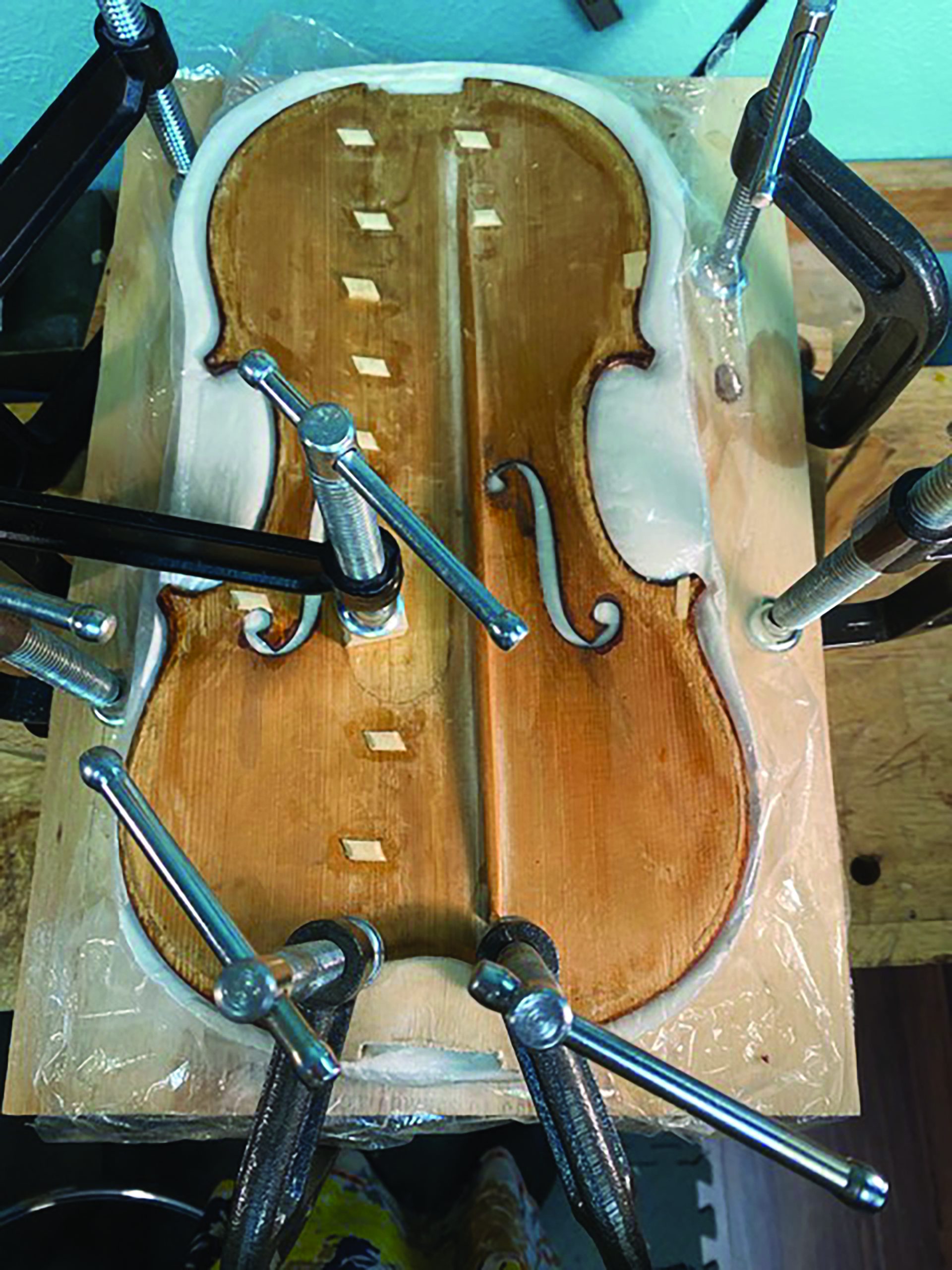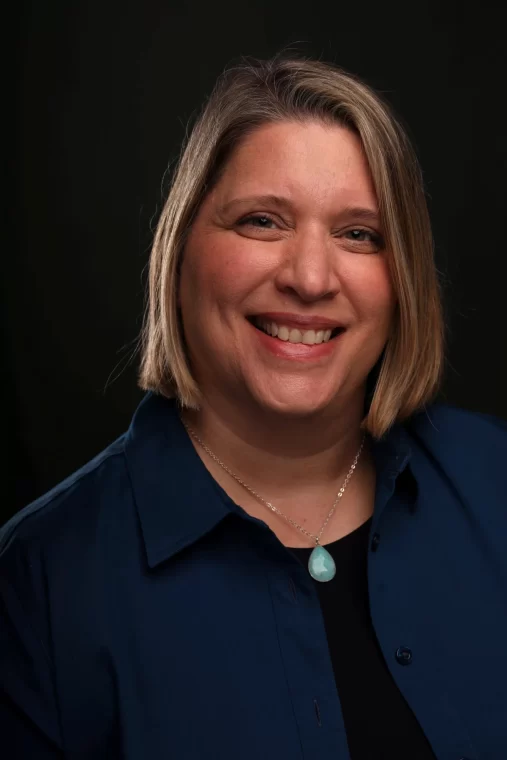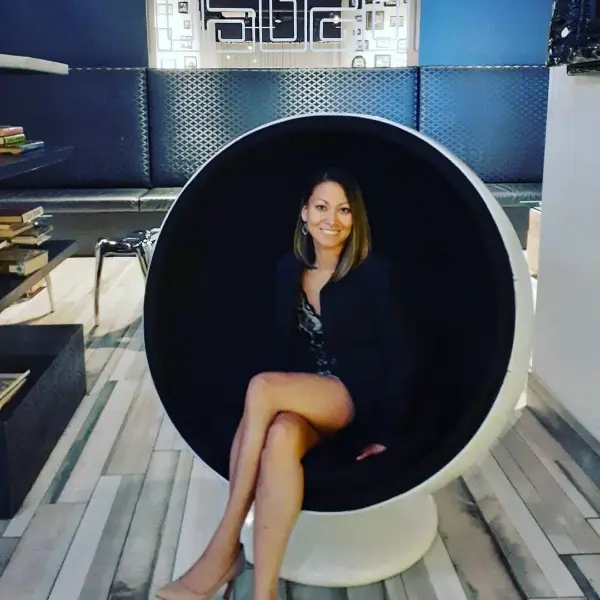Tell us about yourself and Caraway Strings.
My family has been involved in the orchestra world since before I was born: my mother was a public school orchestra teacher and my father started a separate instrument rental business in the Arlington area, in his later years. Caraway is my maiden name, so the business name is a way of honoring my family heritage. Twenty-two years later, my mother is retired and my father has passed, so it brings me joy that the Caraway name is still helping the orchestra community in DFW.
You are a luthier, which is your business’s specialty. Can you tell us more about the luthier business?
A luthier is a fancy name for a violin mechanic. In its most technical sense, it applies to the repair and making of stringed instruments, so a guitar technician can also call themself a luthier. Fellow luthier Duncan Beaver and I focus on stringed orchestra instruments and we divide the work between us. We do everything from minor adjustments, bow rehairs, crack repairs, and even larger restorations involving taking the instruments apart and repairing from the inside. 3

What inspired you to start Caraway Strings, and how did you get involved in the string instrument world?
The twenty-four-year-old version of me was excited about the possibility of creating my own business while also being involved with music. I started out of my house, renting instruments to kids in the local school programs, and got hooked. Being involved in the process of helping a kid develop his or her musical ability is fantastic. Over the years, I really fell in love with the technical side of instruments. Playing wasn’t very satisfying to me, but making a violin sound its best for a musician held meaning for me. My work moved more and more toward the workbench, learning good setup and repair.
What skills do you find most necessary for running Caraway Strings?
Being particular! Violins are particular. They get open seams in the dry winter, the pegs slip when the seasons change, bow hair literally changes length with the humidity, sound posts fall down, bridges wear out. We have to be particular in kind to get an instrument that performs its best. And we must be particular about communicating clearly to our clients and our team. Clients need to understand what’s going on and our team needs to be certain problems are solved their best.
How would you describe the experience of working with your customers? What do you love most about helping musicians find their perfect instrument?
Helping a musician find their instrument truly is a matchmaking process. A player with an aggressive style will need a different instrument and setup than one who prefers a more melodic style and a young player will need a different instrument than a professional. The actual size of the person matters as well: everyone has unique arm lengths, which can affect how a bow’s balance point works for the individual, which affects how they are able to perform with that bow. When a musician is shopping for his or her first nice instrument—perhaps they’ve been renting for a few years and need to graduate to something nicer—this is one of my favorite moments because I get to educate the musician on the different available options. Helping a musician spot sound differences in older versus newer instruments, trying out both wood and synthetic bows…it’s great helping that first-time buyer feel comfortable in a showroom setting and being guided to the ideal instrument. All instruments benefit from a proper setup, perfecting both playability and sound, a process which I truly enjoy. This process includes cutting a bridge to the right height and thickness, making sure the strings are the right height over the fingerboard, getting the soundpost in the right spot, and dozens of other things. I love putting the instrument back in the player’s hands after making an adjustment or repair and seeing a delighted reaction.
What is your background? Have you always been an entrepreneur?
I had a desk job for about a year out of college and then started this venture! It’s just about all I know. In my younger years, I was always labeled as creative, so I was driven to be involved in the arts in some way. Do you have a motto or inspiration which drives your business and your life? Because we serve a wide range of musicians—from the five-year old renting a 1/8 size violin to the professional searching for a performance instrument—we keep going back to the word “matchmaking” here: the right service for the right person.
Do you live in Richardson? If so, what brought you here?
I have lived in the Richardson area since 2004 and my daughter is an RISD student. I’d like to add that it’s been wonderful supporting RISD teachers through the years and having them, likewise, support my business. I’ve been to every public school building in Richardson and work with the orchestra teachers regularly. To everyone reading this, thank you for supporting public schools and the arts.
What advice would you give to other women considering starting their own business in a niche industry like this?
Specifically, in the lutherie industry, there’s never been a better time to be a woman! The Women in Lutherie group is a strong international community that looks out for one another, from giving business advice to making sure other women accept jobs where their expertise and opinions are valued. There are more woman-owned violin shops across the US than ever before. This industry was much more of a “boys’ club” even twenty years ago, but those days are dying. My word of caution for this business is that it really does take a toll on the body over time. Making and restoring is actual labor, so potential luthiers must be prepared for this eventuality and take preventative measures.

Are there any exciting projects, collaborations, or new services you’re working on that you can share with us?
We recently did an overhaul on our operations in the shop: going paperless for contracts and billing, offering a texting service to clients, and digital archival note-keeping for client repairs. Our goal is to make the experience at Caraway Strings as easy as possible for as many people as possible
How do you engage with the Richardson community and the wider Dallas area to promote the business and build relationships with local musicians?
Honestly, we rely mostly on word of mouth. Yes, we do school trips for teacher repairs, and yes, we support some local orchestras with program ads. However, if musicians trust that you can take care of their instrument, which is in many ways an extension of them, they won’t go anywhere else, and they will tell their friends. We’ve built our business on that trust.
For more information about Rozie or
Caraway Strings, visit carawaystrings.
com or follow them on Instagram
@carawaystrings.





Very good https://is.gd/tpjNyL
Good https://is.gd/tpjNyL
Good https://shorturl.at/2breu
Awesome https://lc.cx/xjXBQT
Very good https://urlr.me/zH3wE5
Good https://is.gd/N1ikS2
Good https://is.gd/N1ikS2
Very good https://is.gd/N1ikS2
Good shout.